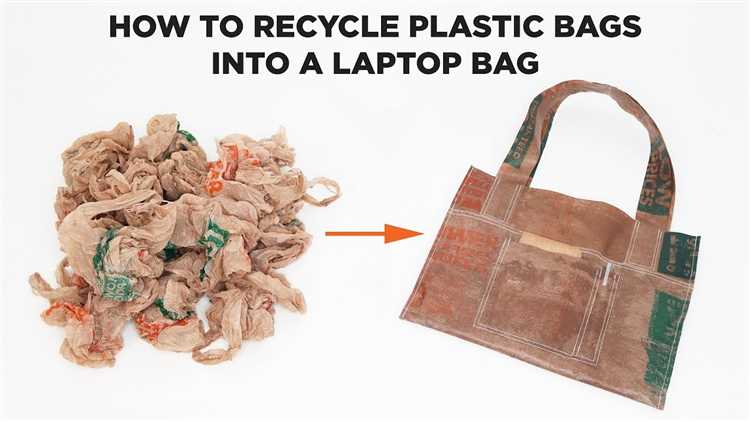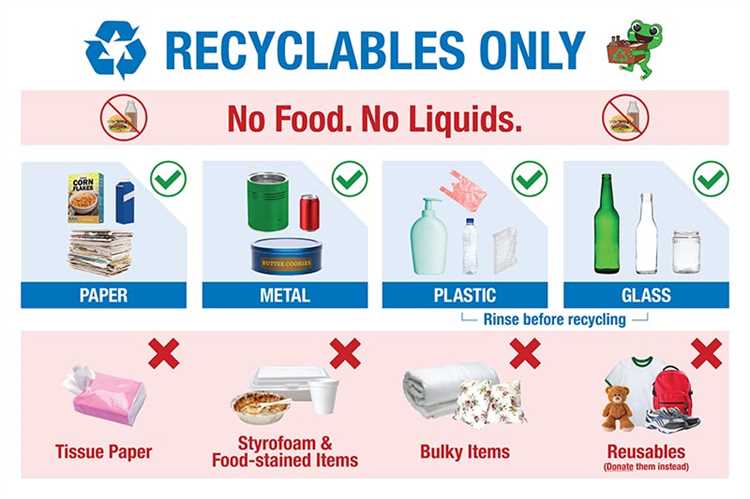If you’ve ever wondered which carrier bags can be recycled, you’re not alone. With the growing concern for our environment, it’s important to understand how we can reduce waste and make more sustainable choices. Recycling carrier bags is one way to do just that, but not all bags are created equal when it comes to recyclability.
Plastic bags: Most plastic carrier bags can be recycled, but it’s important to note that not all recycling facilities accept them. Look for the recycling symbol on the bag or check with your local recycling center to see if they accept plastic bags. If they do, make sure to clean and empty the bags before recycling them.
Paper bags: Paper carrier bags are generally more environmentally friendly than plastic bags, and many of them can be recycled. However, it’s important to check if the bag is made from recycled paper. If it is, you can recycle it with other paper products. If not, it may need to be disposed of in the regular waste stream.
Cloth bags: Cloth carrier bags are becoming increasingly popular due to their reusability and durability. While they can’t be recycled in the traditional sense, they can be reused many times over, reducing the need for single-use bags. When your cloth bag reaches the end of its life, check with local organizations to see if they accept textile donations.
Remember, the key to recycling carrier bags is to check with your local recycling center for specific guidelines. While many bags can be recycled, it’s important to follow the proper procedures to ensure they end up in the right place. By making a conscious effort to recycle your carrier bags, you’re taking a small step towards a greener future.
- Which Carrier Bags Can Be Recycled?
- Plastic Bags
- Recycling Plastic Bags
- Type of Plastic Bags That Can Be Recycled
- Paper Bags
- Biodegradable Bags
- Types of Biodegradable Bags
- Benefits of Biodegradable Bags
- Q&A:
- Can carrier bags with logos be recycled?
- Can I recycle plastic carrier bags at the supermarket?
- What should I do with carrier bags that cannot be recycled?
- Are biodegradable carrier bags recyclable?
Which Carrier Bags Can Be Recycled?

When it comes to recycling carrier bags, not all bags are created equal. Understanding which bags can be recycled is essential for proper waste management and environmental sustainability.
Plastic Carrier Bags:
Plastic carrier bags made from high-density polyethylene (HDPE) are widely accepted for recycling. These bags are typically labeled with the recycling symbol number 2. HDPE bags are commonly used in grocery stores and are easily recyclable.
On the other hand, plastic carrier bags made from low-density polyethylene (LDPE), which are often used in smaller stores or for packaging, are not as widely accepted for recycling. LDPE bags may need to be taken back to specific collection points or returned to participating stores for proper recycling.
It’s important to note that plastic carrier bags should be empty and clean before being placed in recycling bins or containers. Bags with food residue or other contaminants can contaminate an entire batch of recyclables.
Paper Carrier Bags:
Paper carrier bags, made from high-quality paper, are generally accepted for recycling. These bags are commonly used by retailers and have a higher likelihood of being recycled compared to plastic bags.
However, paper bags with plastic coatings, such as those used for takeout food or containing grease stains, may not be recyclable. The plastic coating makes it difficult to be processed in recycling facilities. It’s always best to check local recycling guidelines to confirm if these paper bags are accepted.
Reusable Cloth Bags:
Cloth or fabric bags are an excellent alternative to plastic or paper carrier bags. They are not only durable but also reusable, reducing waste in the long run. Cloth bags made from materials like cotton or polyester can be recycled but should be checked for any non-recyclable components like zippers or other fasteners. Some recycling centers may accept these bags, while others may redirect you to a textile recycling program.
Before recycling any carrier bag, it’s important to check local recycling guidelines. Some recycling facilities may have specific requirements or restrictions on the types of bags they accept.
Plastic Bags

Plastic bags are one of the most common types of carrier bags used around the world. They are lightweight, durable, and convenient for carrying items.
However, plastic bags have become a significant environmental concern due to their harmful impact on our planet. They are made from non-biodegradable materials, which means they do not break down naturally and can persist in the environment for hundreds of years.
Plastic bags can have serious consequences for wildlife. Many animals mistake them for food and end up ingesting them, which can lead to life-threatening complications. Additionally, plastic bags can clog waterways and contribute to flooding in certain areas.
Recycling Plastic Bags
Fortunately, plastic bags can be recycled, providing an opportunity to reduce their negative environmental impact. Recycling plastic bags helps conserve energy and resources, as well as reduce the need for new plastic production.
To recycle plastic bags, you can typically take them to designated collection points, such as grocery stores or recycling centers. Make sure to check with your local recycling program for specific instructions on how to properly dispose of plastic bags.
Type of Plastic Bags That Can Be Recycled
Not all plastic bags can be recycled, so it’s essential to know which ones can. Generally, the plastic bags that can be recycled include:
| Type of Plastic Bag | Recyclable |
|---|---|
| High-density polyethylene (HDPE) bags | Yes |
| Low-density polyethylene (LDPE) bags | Yes |
| Linear low-density polyethylene (LLDPE) bags | Yes |
| Produce bags | Yes |
It’s important to note that plastic bags should be clean and dry before recycling. Remove any stickers or labels, as they can contaminate the recycling process.
By recycling plastic bags and opting for reusable alternatives, such as cloth or canvas bags, you can contribute to the reduction of plastic waste and help protect our environment.
Paper Bags
Paper bags are widely considered to be one of the most environmentally friendly options when it comes to carrier bags. They are made from renewable resources and can be recycled multiple times.
Most paper bags are made from kraft paper, which is a strong and durable material. This makes them suitable for carrying heavy items. Additionally, paper bags are biodegradable, which means they will naturally break down over time and not contribute to landfill waste.
When it comes to recycling paper bags, it is important to remove any handles, stickers, or other non-paper components before recycling. Some paper bags have a plastic coating, which can make them non-recyclable. However, many paper bags are now made with a water-based coating, which allows them to be recycled along with other paper products.
| Recyclable | Non-Recyclable |
|---|---|
| Paper bags without any plastic coating | Paper bags with a plastic coating |
| Paper bags with water-based coating |
It is worth noting that not all recycling facilities accept paper bags, so it is always a good idea to check with your local recycling program to see if they can be recycled in your area. If paper bags are not accepted for recycling, they can still be reused or composted if they are clean and free of any contaminants.
Overall, paper bags are a sustainable and recyclable option for carrying your groceries and other items. By choosing paper bags over plastic bags, you can help reduce waste and protect the environment.
Biodegradable Bags
Biodegradable bags are an environmentally friendly alternative to traditional plastic bags. These bags are made from a variety of materials, such as plant-based fibers, cornstarch, or other organic materials. The main advantage of biodegradable bags is that they break down naturally over time, leaving behind no harmful residue or microplastics.
It is important to note that not all biodegradable bags are created equal. Some bags may only be partially biodegradable or require specific conditions, such as exposure to sunlight or high temperatures, to break down. Therefore, it is crucial to check the packaging or labels for certification that verifies the bags meet certain standards.
Types of Biodegradable Bags
There are several types of biodegradable bags available:
- Compostable bags: These bags are designed to break down in industrial composting facilities. They can be composted along with other organic waste and are an excellent option for individuals or businesses with access to composting facilities.
- Oxo-biodegradable bags: These bags are made from traditional plastic but contain additives that accelerate degradation. While they do break down faster than regular plastic bags, they may still leave behind small microplastics. Therefore, they are not considered as sustainable as other types of biodegradable bags.
- Water-soluble bags: These bags are designed to dissolve in water, making them a suitable option for certain applications, such as laundry or dishwasher detergents. However, they may not be suitable for normal use or recycling, as they can break down too quickly.
Benefits of Biodegradable Bags
Using biodegradable bags has several benefits:
- Reduced environmental impact: Biodegradable bags produce fewer greenhouse gas emissions and require fewer resources to produce compared to traditional plastic bags.
- Less pollution: Biodegradable bags do not contribute to the accumulation of plastic pollution in landfills or the ocean.
- Closed-loop system: Some biodegradable bags can be composted or used to produce biogas, creating a closed-loop system that reduces waste and promotes sustainability.
It is important to note that biodegradable bags should still be used responsibly. Reusable bags, such as cotton or canvas, are the most sustainable option for carrying groceries or other items. However, if you do choose to use biodegradable bags, make sure to dispose of them properly to ensure they can break down naturally and not contaminate recycling streams.
Q&A:
Can carrier bags with logos be recycled?
Yes, carrier bags with logos can be recycled. However, it is important to check with your local recycling facility or program to see if they accept bags with logos.
Can I recycle plastic carrier bags at the supermarket?
Yes, many supermarkets have designated collection points where you can recycle your plastic carrier bags. These collection points are usually located near the entrance or near the checkout counters.
What should I do with carrier bags that cannot be recycled?
If carrier bags cannot be recycled, it is best to reuse them as many times as possible before disposing of them. Alternatively, you can also consider using fabric or reusable bags to reduce your plastic waste.
Are biodegradable carrier bags recyclable?
Biodegradable carrier bags are not always recyclable. While they may break down more easily in the environment, they can still cause problems in the recycling process. It is important to check with your local recycling facility to see if they accept biodegradable bags.